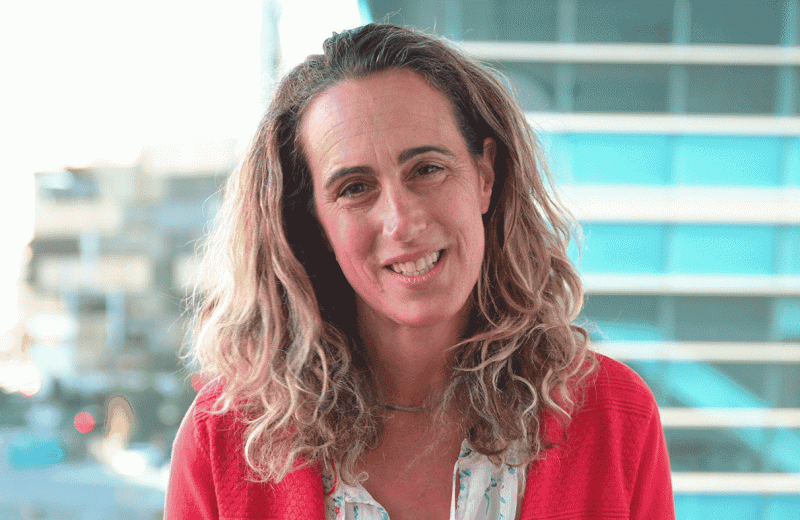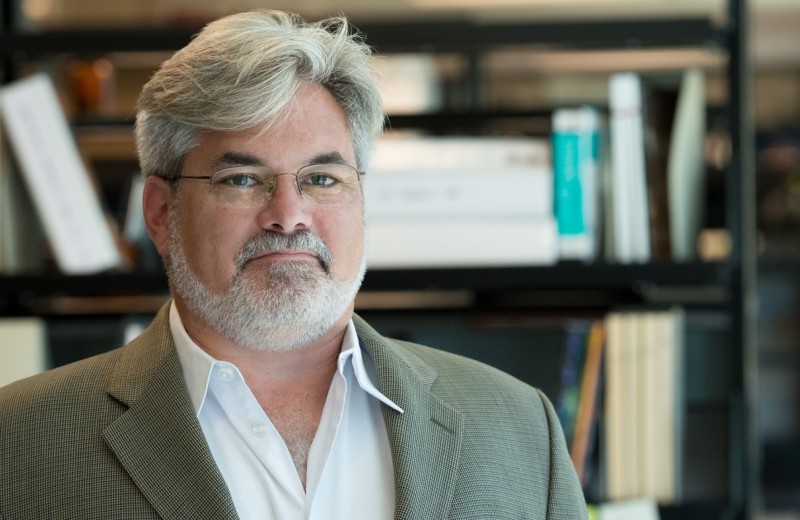Gladstone NOW: The Campaign Join Us on the Journey✕

SAN FRANCISCO, CA—June 15, 2010—The Institute for Systems Biology (ISB) of Seattle, WA, is collaborating with the Gladstone Institute of Neurological Disease (GIND) and its Taube-Koret Center for Huntington's Disease Research to use whole-genome sequencing to identify genes and novel drug targets related to the onset and progression of Huntington's disease (HD). The research team, led by GIND associate director and senior investigator Steven Finkbeiner, MD, PhD, will also use induced pluripotent stem (iPS) cells from patients with HD to screen for drugs that might delay, prevent, or even reverse this devastating condition.
HD is an inherited degenerative brain disorder attributed to a single gene mutation. However, Finkbeiner, who directs the Taube-Koret Center for Huntington's Disease Research, explained that other genes may regulate the onset and progression of the disease and influence the particular symptoms that each individual experience. “We hope to find out why HD manifests and progresses in different ways in different people and to discover other genes that influence the disease,” he said. This will expand the number of therapeutic targets that might be used to modulate the symptoms or progression of HD.
“ISB has already demonstrated the power of using whole family genome sequencing to identify genes that encode simple genetic diseases. This study offers the opportunity to go one step further and actually find genes that modify the effects of a well known disease gene—that encoding the Huntington's Disease,” said ISB's president Lee Hood, MD, PhD. More than 100,000 Americans and more than 10 times that number worldwide have HD or are at risk of inheriting the disease from a parent.
“This is the first disease-focused project that will use the power of whole-genome sequencing in families,” said David Galas, ISB's senior vice president for strategic partnerships. “With Gladstone's deep experience in Huntington's disease and in stem cell biology, we can make a tremendous step toward finding strategies for a cure.”
The Gladstone team will provide DNA samples of HD patients and family members who are unaffected or at risk for HD, which will be sequenced by ISB in partnership with Complete Genomics of Mountain View, CA.
The Gladstone team is collecting DNA samples with help from collaborators including Dr. Vicki Wheelock and Terry Tempkin at the University of California, Davis, Andrea Zanko and Drs. Gail Kang, Michael Geschwind, and Bruce Miller at the University of California, San Francisco, and members of the Northern California Huntington's Disease Society of America. The sequencing project, which is also funded by ISB's Luxembourg program, is the largest complete human genome disease association study conducted to date.
Taube-Koret Center investigators at Gladstone are currently part of a large consortium funded by the National Institutes of Health that uses iPS cells to develop human neurons with HD characteristics. Fibroblasts are obtained from the skin cells of HD patients and converted first into iPS cells and then into neurons that may provide a more accurate platform for testing new therapies than currently available experimental models.
“One of the challenges of Huntington's and many other neurological diseases is that many potential therapies that show promise in animal models turn out to be ineffective in people,” Finkbeiner said. “One of the promises of iPS technology is to be able to develop models from HD patients that can give us more detailed information about the disease and better predict how therapies could work in humans.”
He pointed out that genomic information from the new collaboration could expand therapeutic opportunities not only for HD but also for other neurological diseases. “The hope is that the work we do here will lay the foundation for applying these techniques to more common but unfortunately more complex neurodegenerative diseases,” Finkbeiner said.
“I am extremely excited about this first collaborative project between our Institute and the ISB,” said Lennart Mucke, MD, GIND director. “We look forward to using similar strategies in our fight against Alzheimer's disease, frontotemporal dementia, and Parkinson's disease.”
About the Institute for Systems Biology
The Institute for Systems Biology (ISB) is an internationally renowned, non-profit research institute headquartered in Seattle and dedicated to the study and application of systems biology. Founded by Leroy Hood, Alan Aderem and Ruedi Aebersold, ISB seeks to unravel the mysteries of human biology and identify strategies for predicting and preventing diseases such as cancer, diabetes and AIDS. ISB´s systems approach integrates biology, computation and technological development, enabling scientists to analyze all elements in a biological system rather than one gene or protein at a time. Founded in 2000, the Institute has grown to 13 faculty and more than 300 staff members; an annual budget of more than $50 million; and an extensive network of academic and industrial partners. For more information about ISB, visit www.systemsbiology.org.
About the Taube-Koret Center for Huntington's Disease Research
The Center was established in 2009 with gifts from Taube Philanthropies and the Koret Foundation for the sole purpose of identifying strategies and developing therapeutics to treat people with HD and related neurodegenerative diseases.
About the Gladstone Institutes
Established in 1979, The J. David Gladstone Institutes is an independent, nonprofit biomedical research organization that operates in close affiliation with the University of California, San Francisco (UCSF). Gladstone is dedicated to the health and welfare of humankind through research into the causes and prevention of some of the world's most devastating diseases. Gladstone is composed of the Gladstone Institute of Cardiovascular Disease, the Gladstone Institute of Virology and Immunology, the Gladstone Institute of Neurological Disease, and the Gladstone Center for Translational Research.
Support Discovery Science
Your gift to Gladstone will allow our researchers to pursue high-quality science, focus on disease, and train the next generation of scientific thought leaders.
Meet Gladstone: Julia Kaye
Meet Gladstone: Julia Kaye
Julia Kaye is a neuroscientist at Gladstone Institutes dedicated to unraveling the mysteries of neurodegenerative diseases. Outside the lab, Kaye enjoys skateboarding, surfing, and exploring nature with her family.
Profile ALS Huntington’s Disease Multiple Sclerosis Neurological Disease KayeConnecting the Dots: From Stem Cells to Human Health
Connecting the Dots: From Stem Cells to Human Health
Since Shinya Yamanaka discovered a method to create human induced pluripotent stem (iPS) cells, Gladstone researchers have built on this technology to create numerous iPS cell lines, coax iPS cells into a myriad of tissue types, use them as a tool to study disease, and even begin creating therapies using these cells.
Research (Publication) Stem Cell Core Alzheimer’s Disease Huntington’s Disease Finkbeiner Lab Huang Lab McDevitt Lab Srivastava Lab Yamanaka Lab CRISPR/Gene EditingTaube Philanthropies Announces $3 Million Gift to Stanford Medicine and Gladstone Institutes for Huntington’s Disease Research
Taube Philanthropies Announces $3 Million Gift to Stanford Medicine and Gladstone Institutes for Huntington’s Disease Research
The funded program will, for the first time, introduce gene editing and stem cell therapies in the search for a potential cure
Huntington’s Disease Finkbeiner Lab



